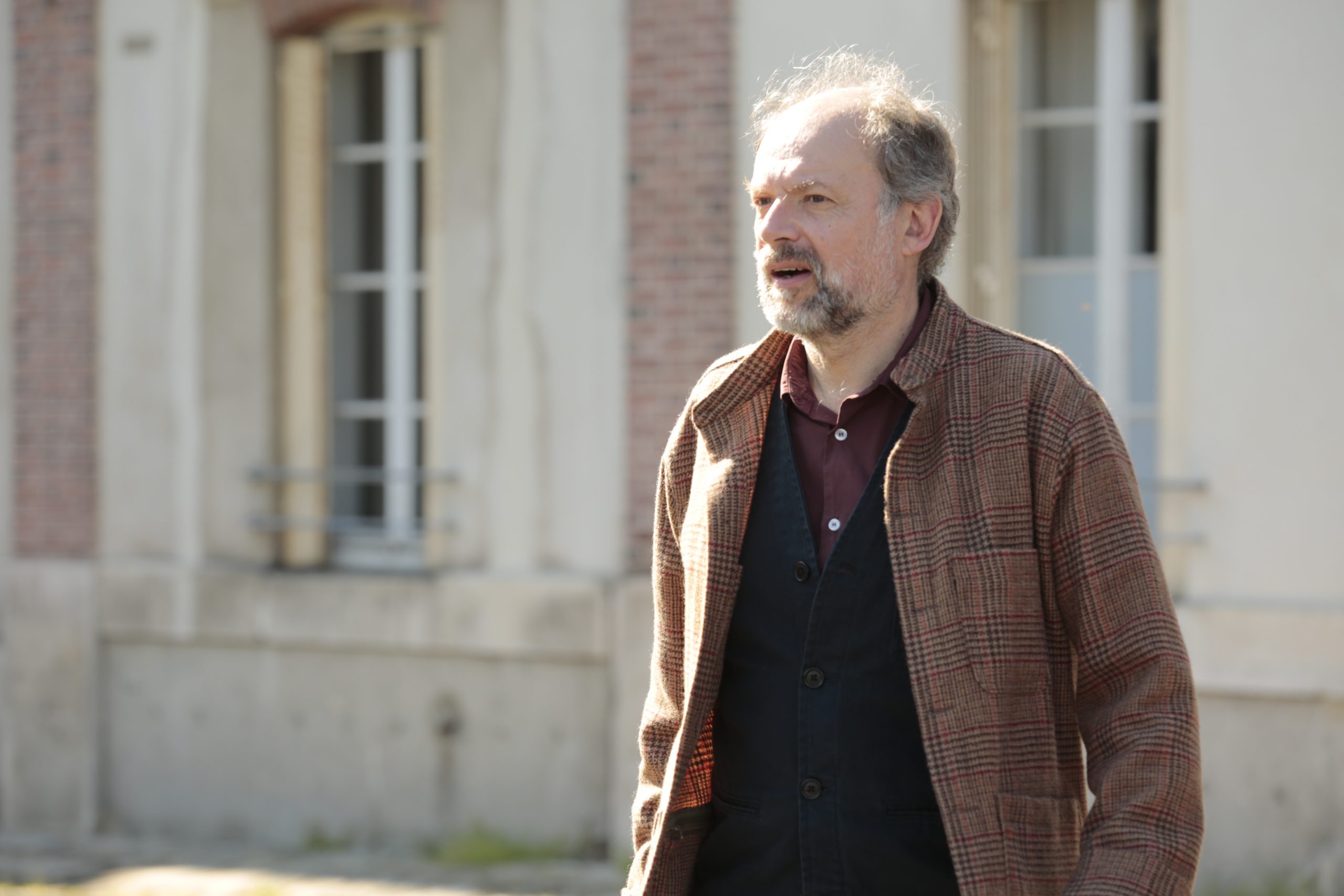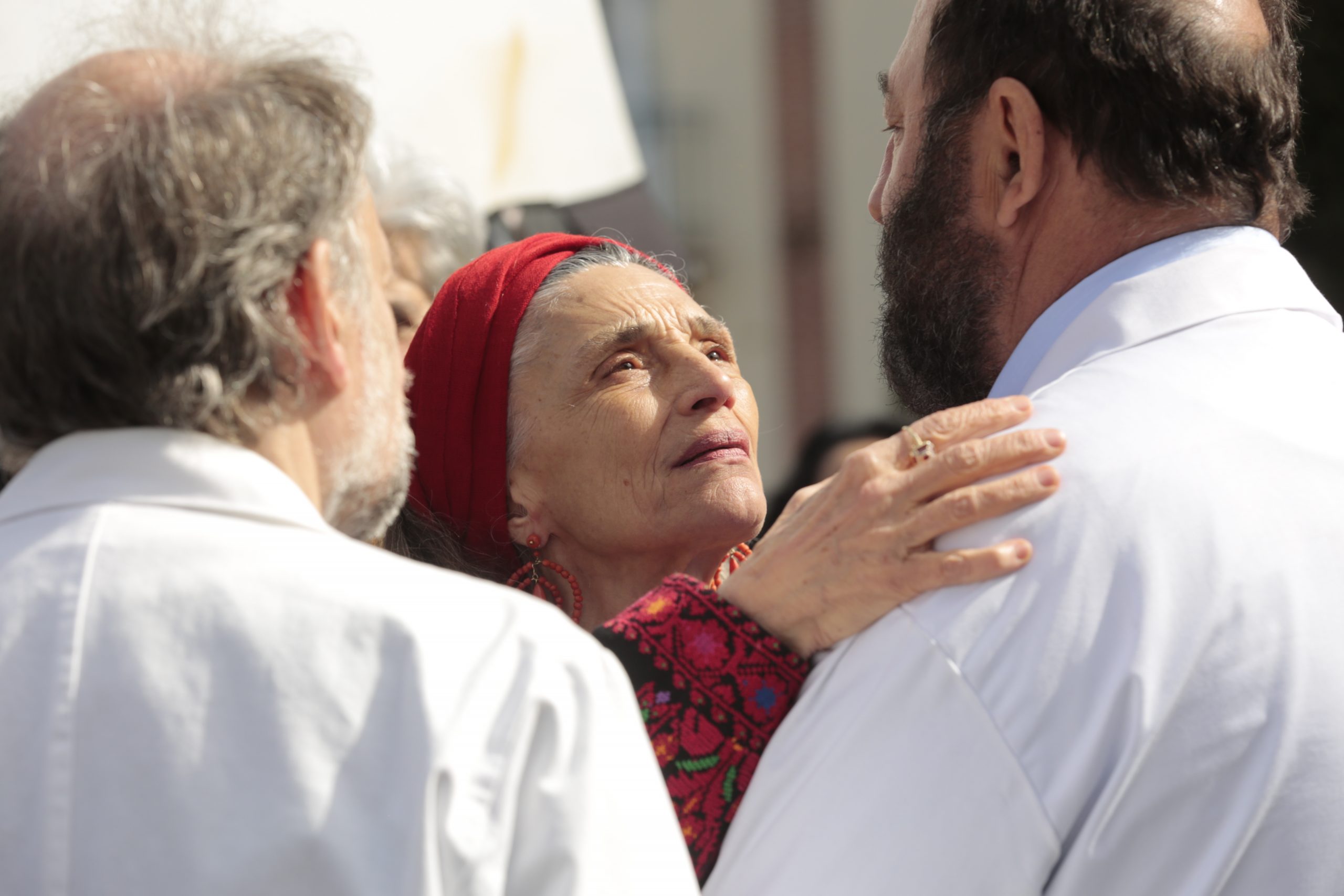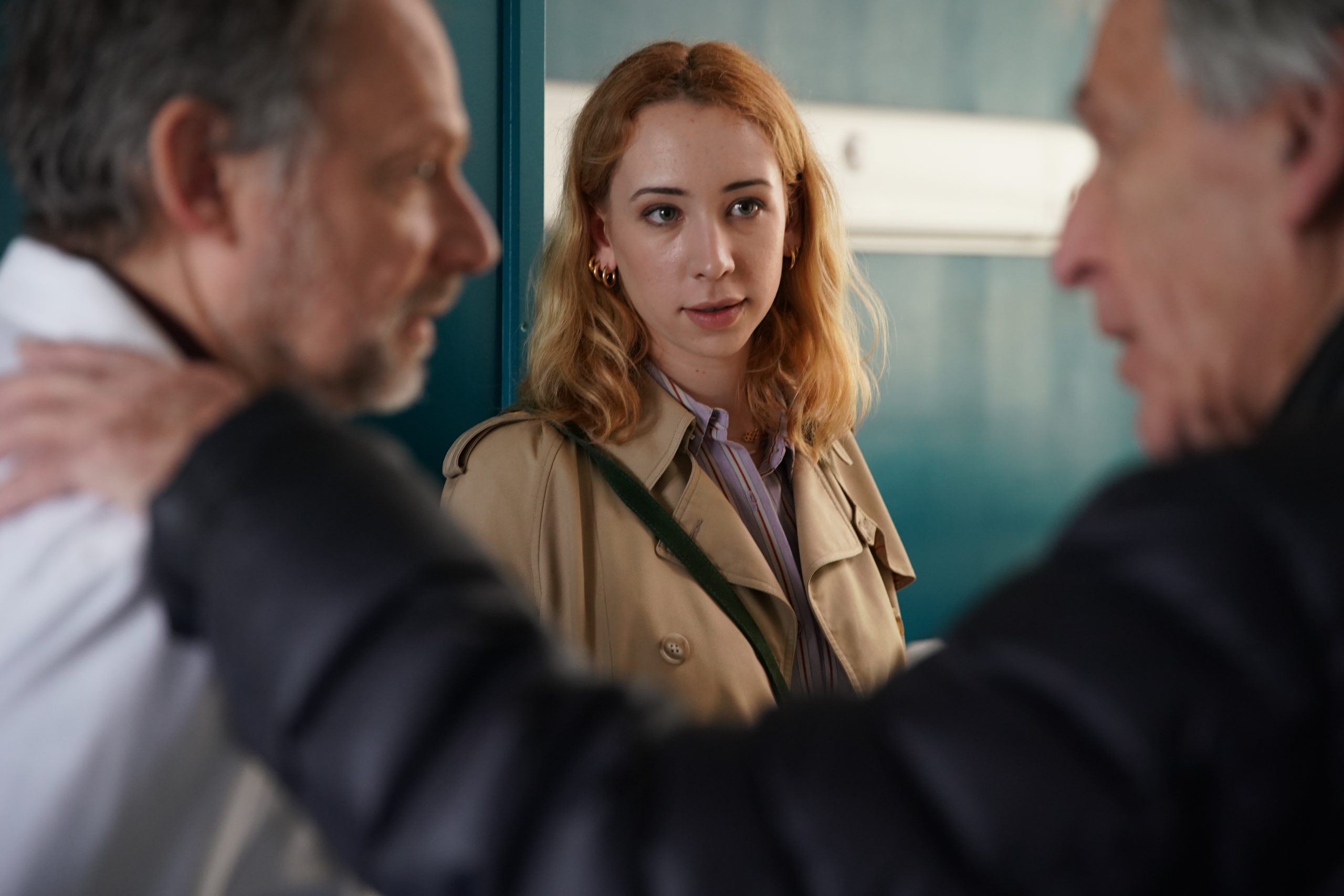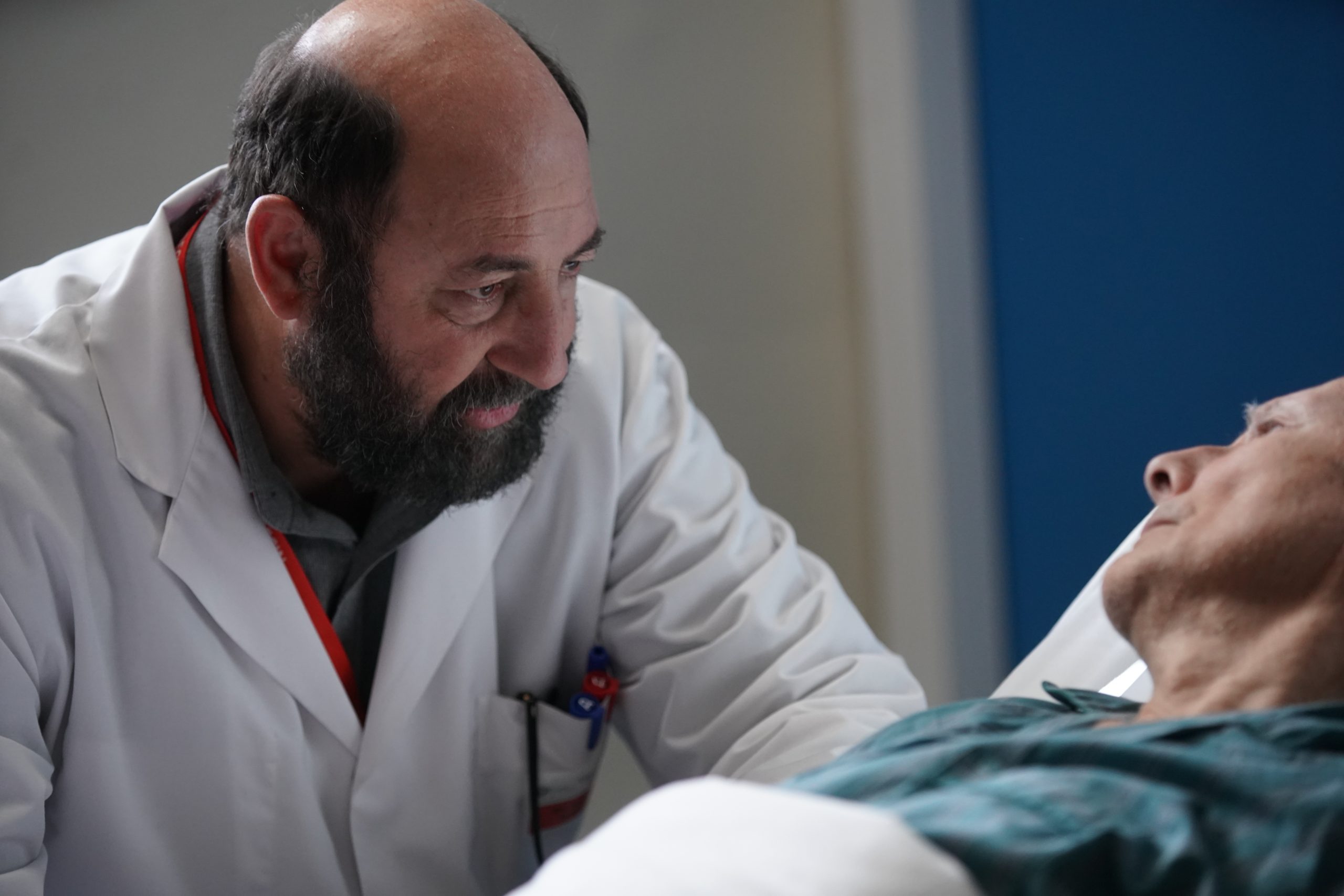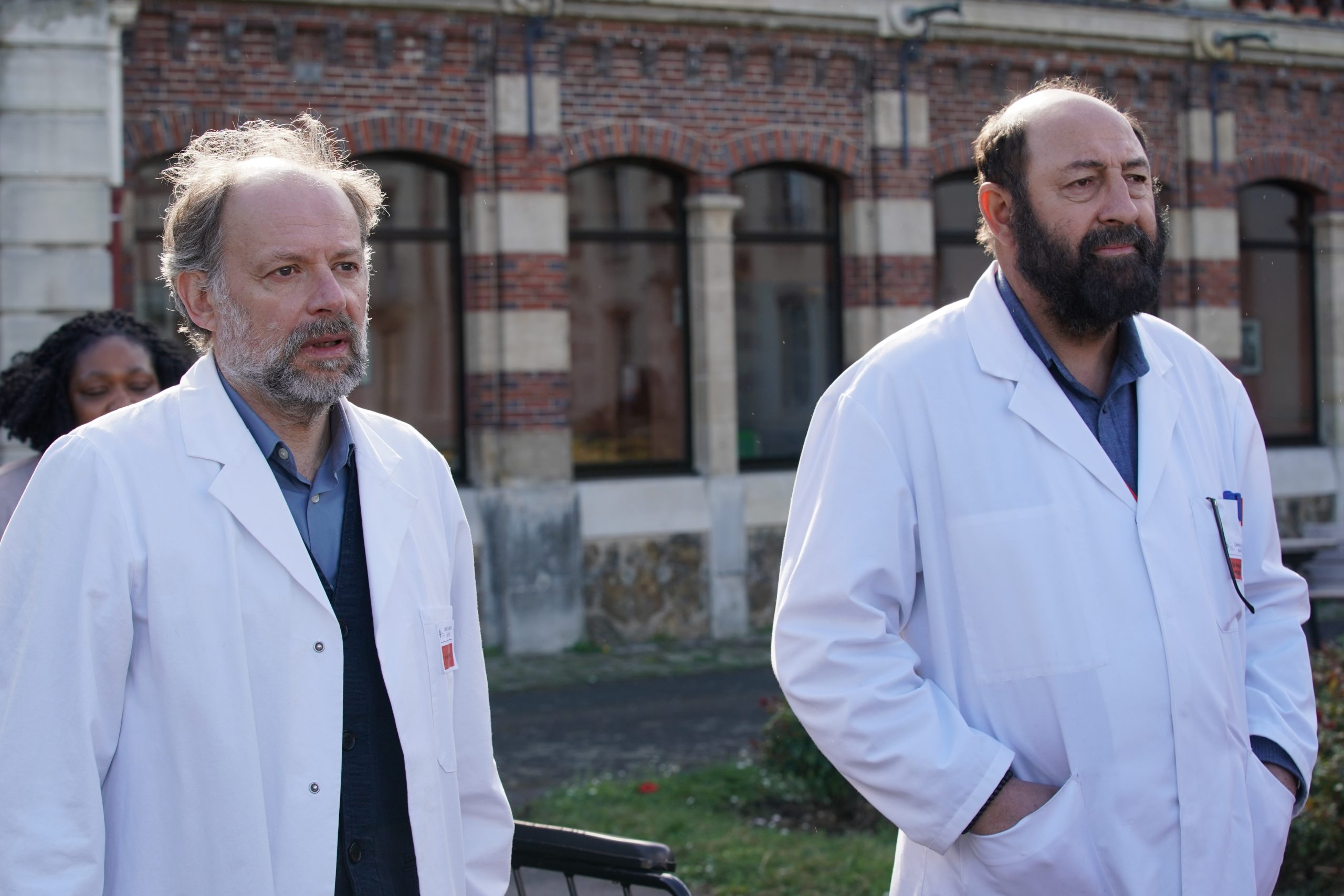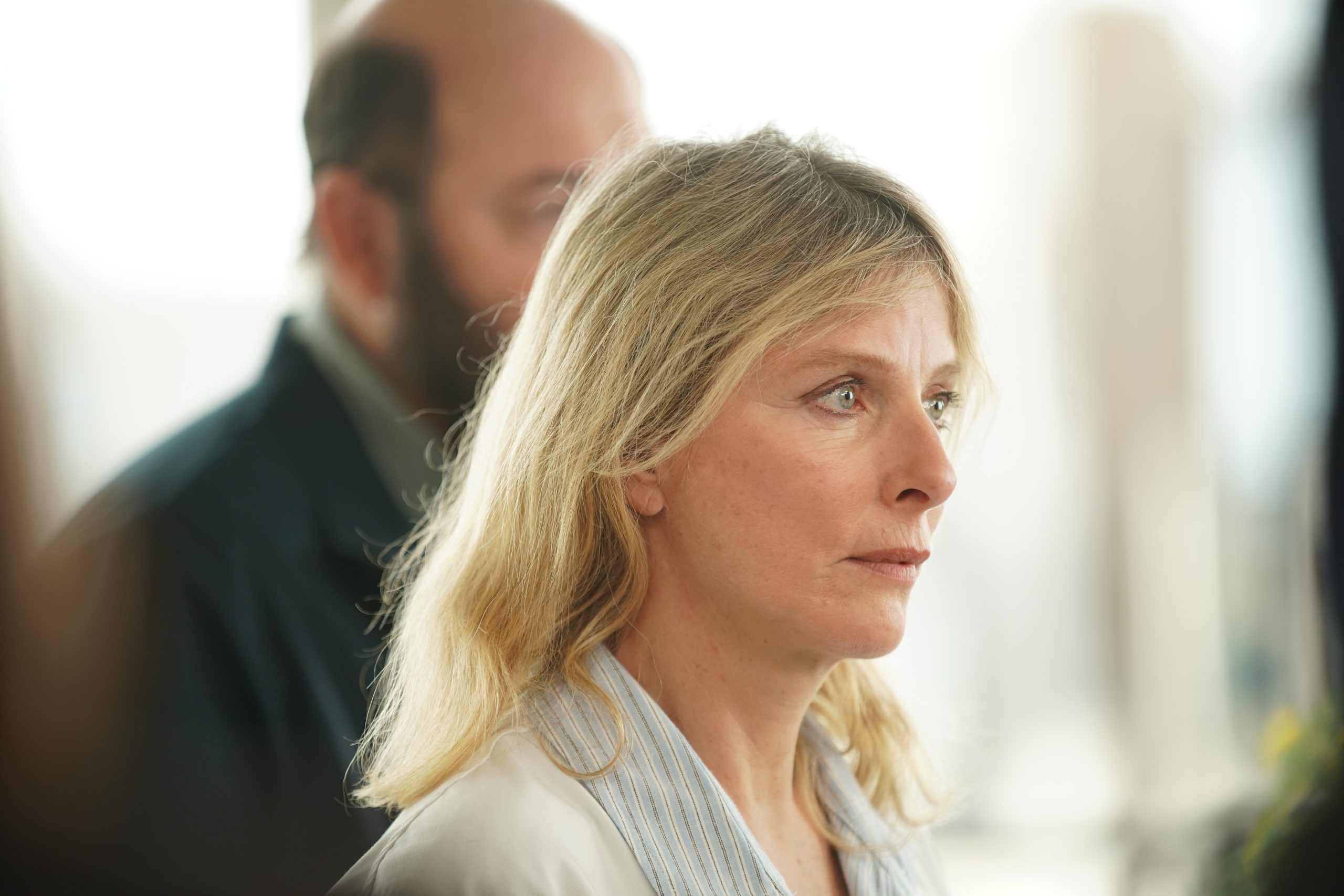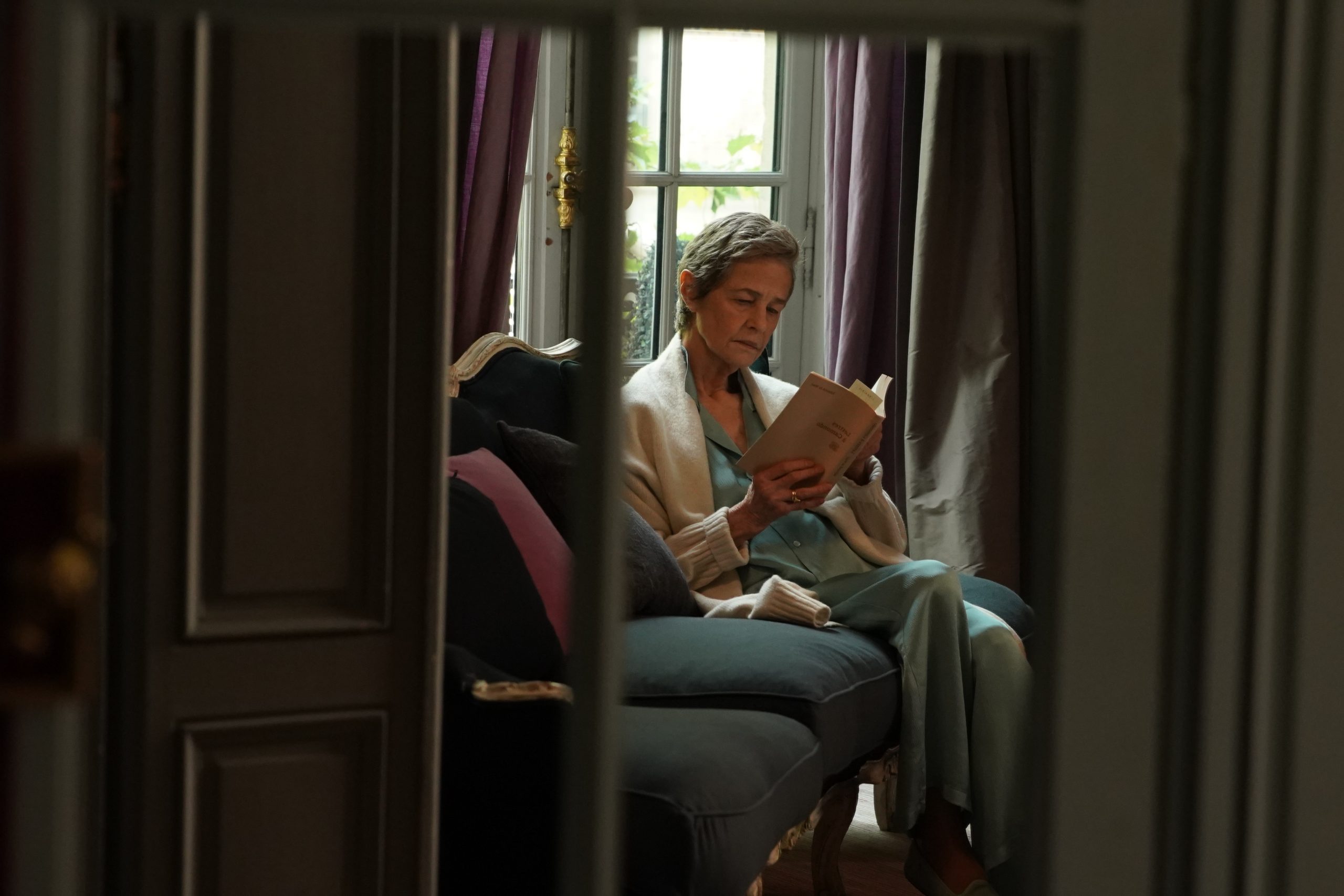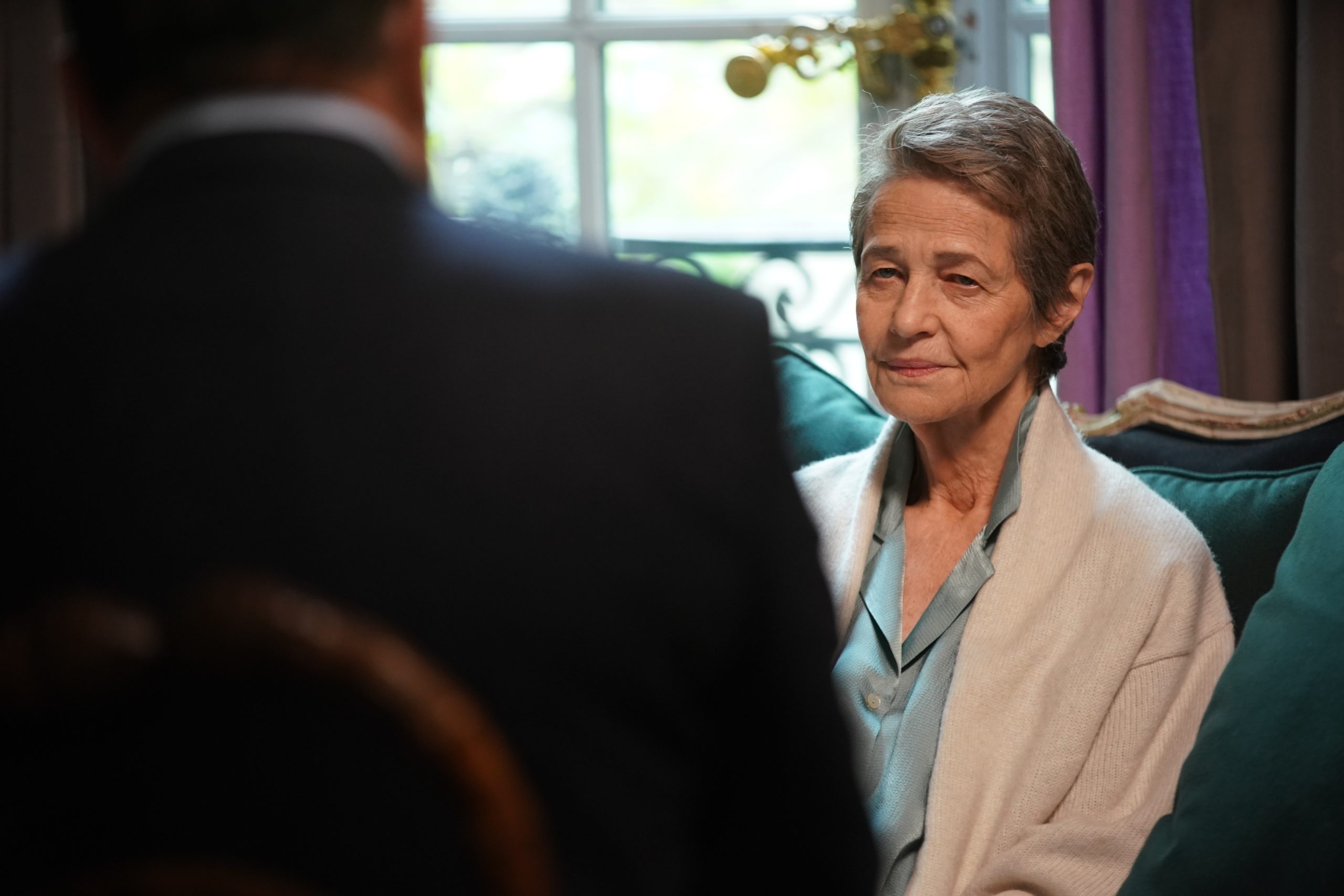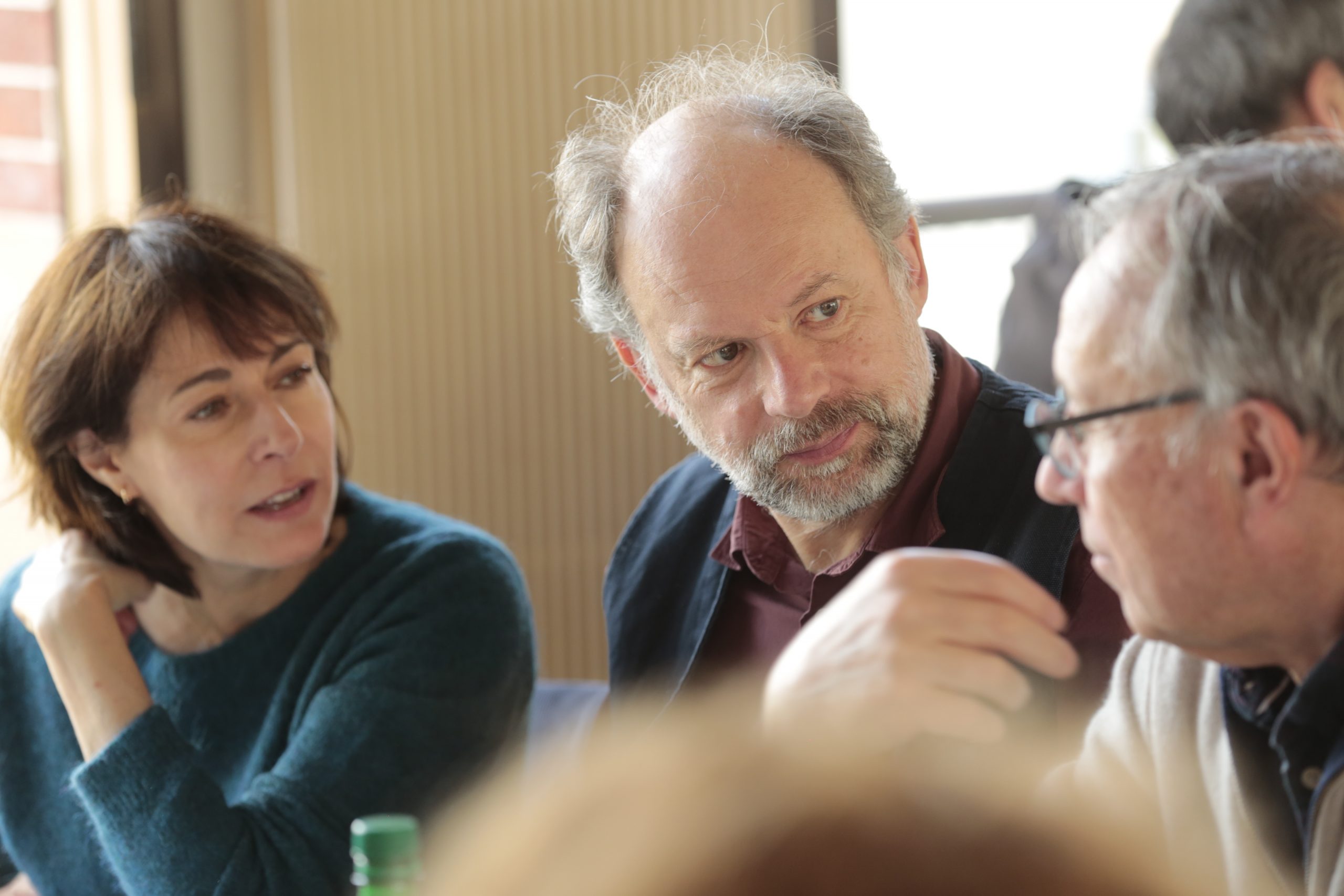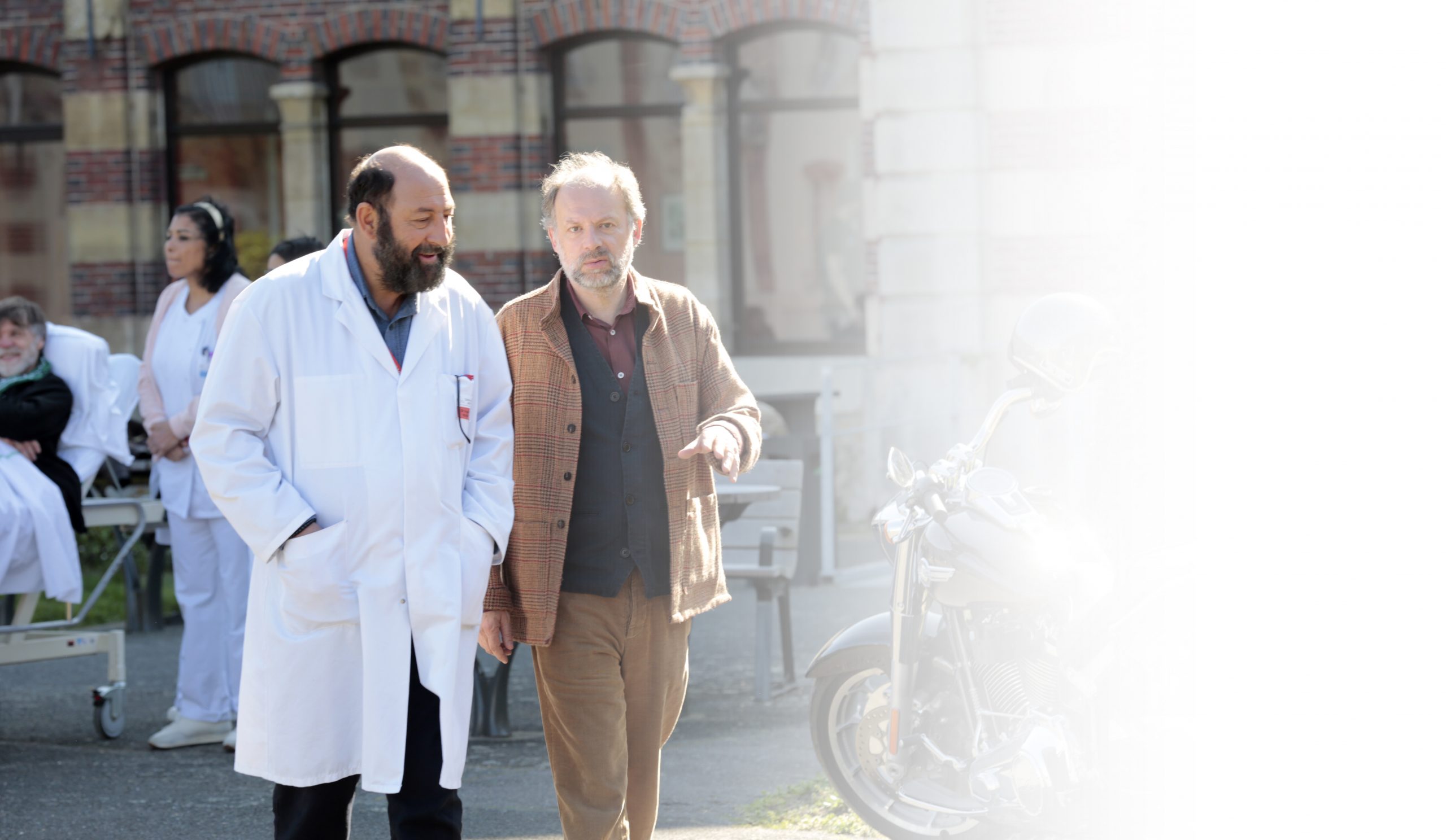Official Selection of Feature Films
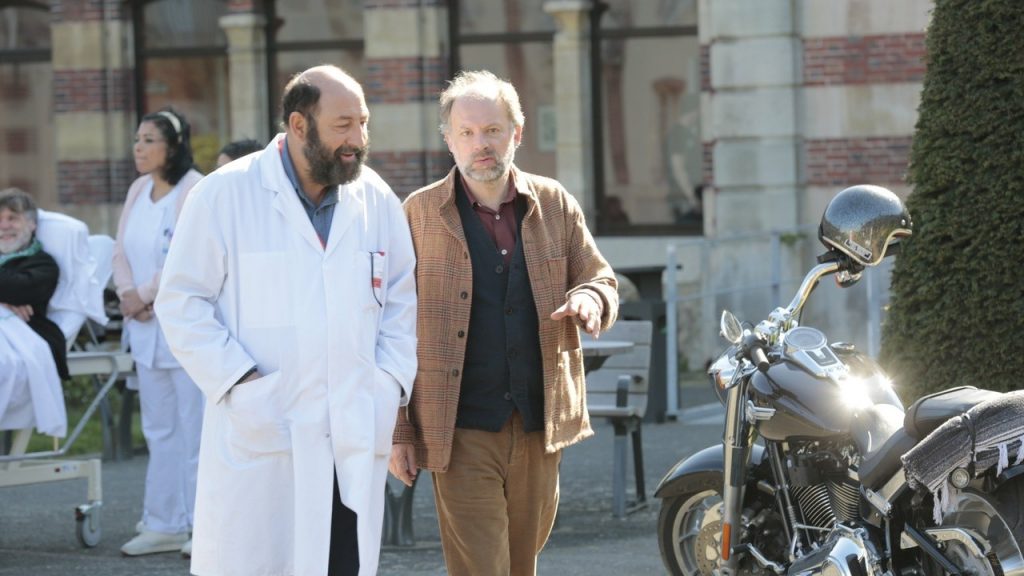
(May 23 / 21:00) LAST BREATH
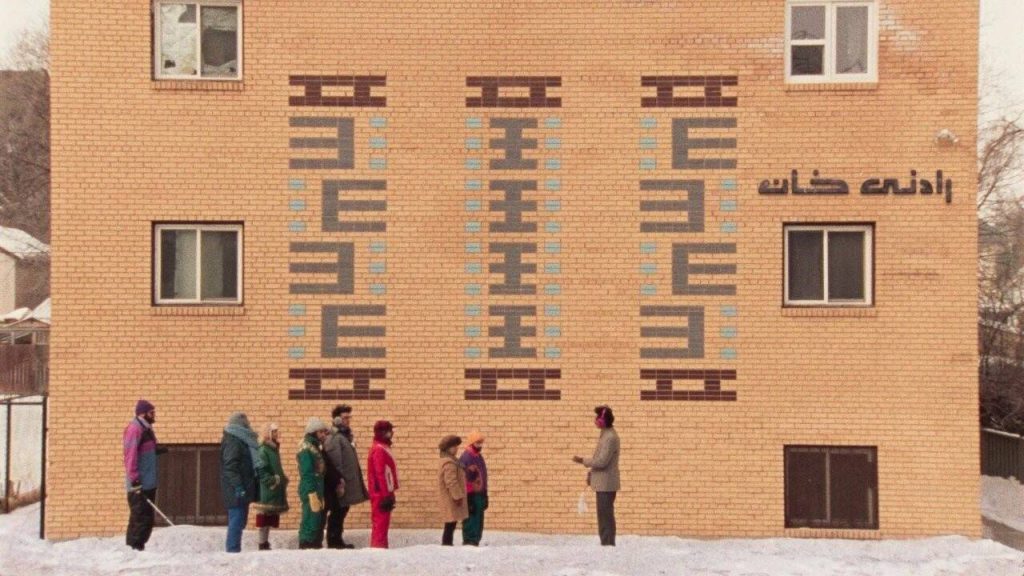
(May 24 / 21:00) UNIVERSAL LANGUAGE
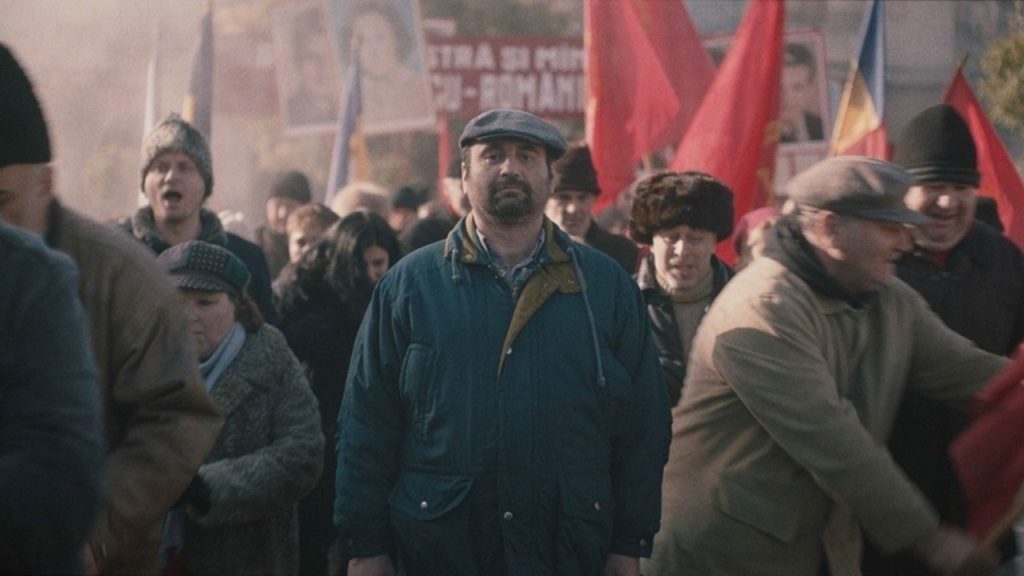
(May 25 / 21:00) THE NEW YEAR THAT NEVER CAME
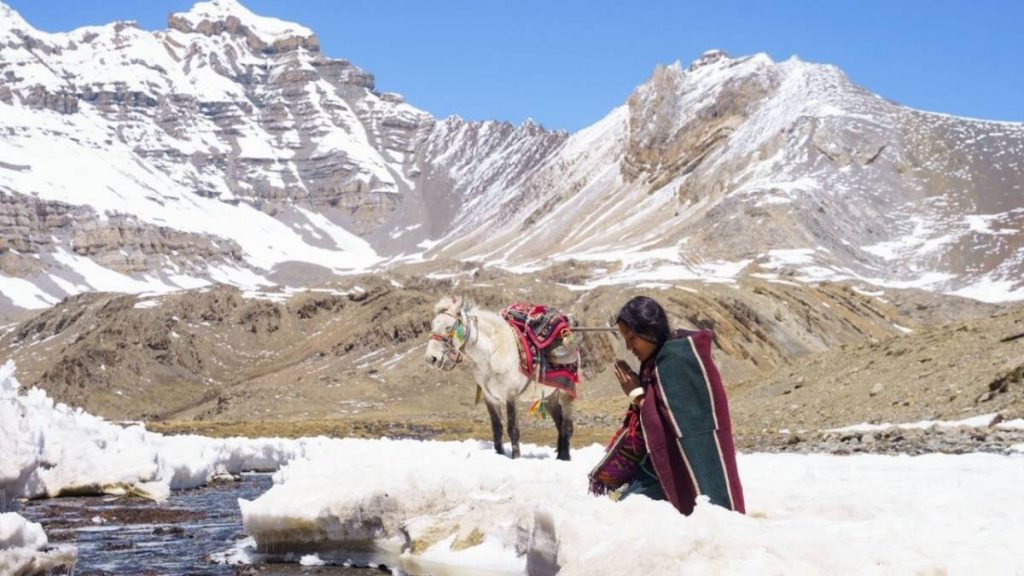
(May 26 / 21:00) SHAMBHALA
(May 27 / 21:00) PANOPTICON
-
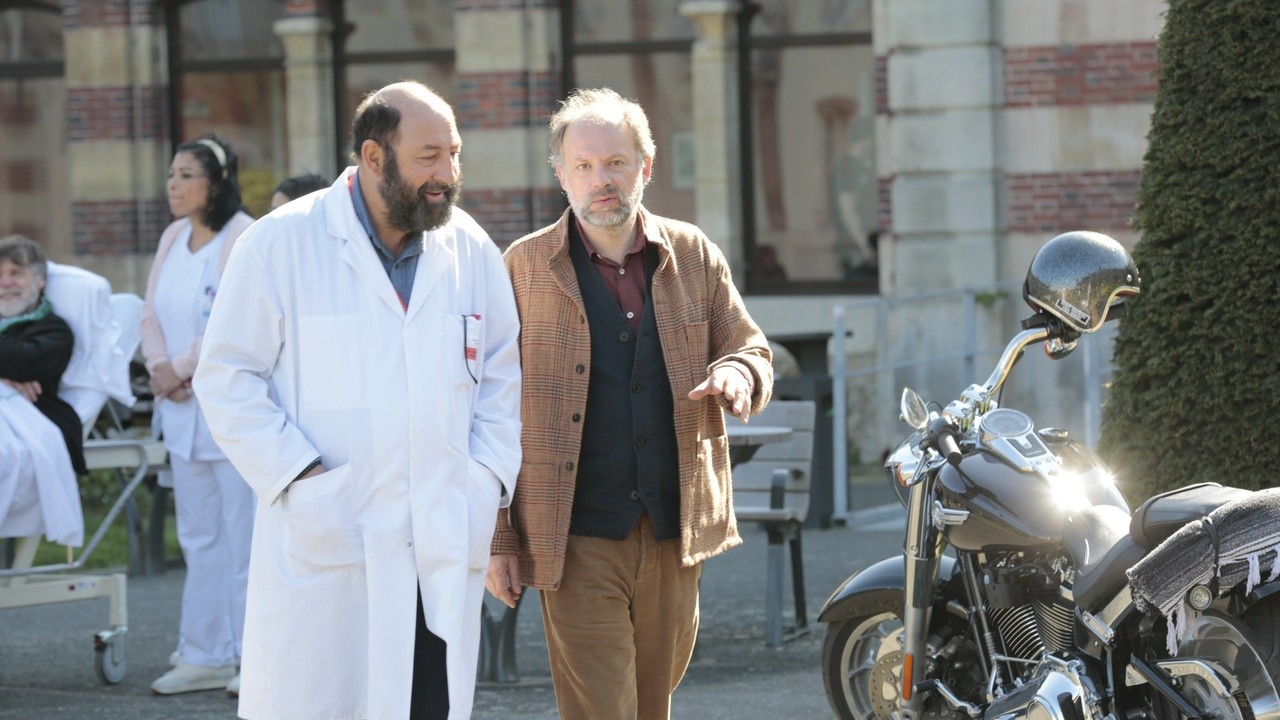
(May 23 / 21:00) LAST BREATH
May 23 (Friday) 21:00
Cinematheque
LAST BREATH (Le dernier souffle, 2024)
dir. Costa-Gavras, FR, 99’
Warm and gentle, with a tone of testament, Last Breath by legendary filmmaker Costa-Gavras—now in his tenth decade—courageously departs from his trademark political voice. Adapting the intimate Le dernier souffle: Accompagner la fin de vie by Claude Grange and Régis Debray, he offers a deep philosophical and intellectual meditation on life, death, and human fragility.
Fabrice Toussaint, an established but controversial Parisian writer, is diagnosed with a small, inactive tumor in his abdomen. With no urgency, the biopsy is replaced by regular monitoring; and in the absence of clarity, peace in Fabrice’s life is replaced by existential unease. In search of a kind of therapy, Fabrice grows close to Augustin Massé, head of the palliative care unit, who offers his patients not medicine but care, not false hope but dignity, not an uncertain future but presence—in essence, true humanity and extended life, instead of invasive procedures and delayed death.
Structured as a series of fragmented vignettes, Last Breath presents a panoramic reflection on our shared end, emphasizing the need for it to be dignified. Without attempting to solve the enigma of death, Costa-Gavras portrays it as an intimate, personal experience—masterfully orchestrating a kind of philosophical symphony in which silences and pauses are as articulate and resonant as words themselves.
Festivals
Selections: San Sebastián • Rotterdam • Stockholm • Valladolid • Rio -
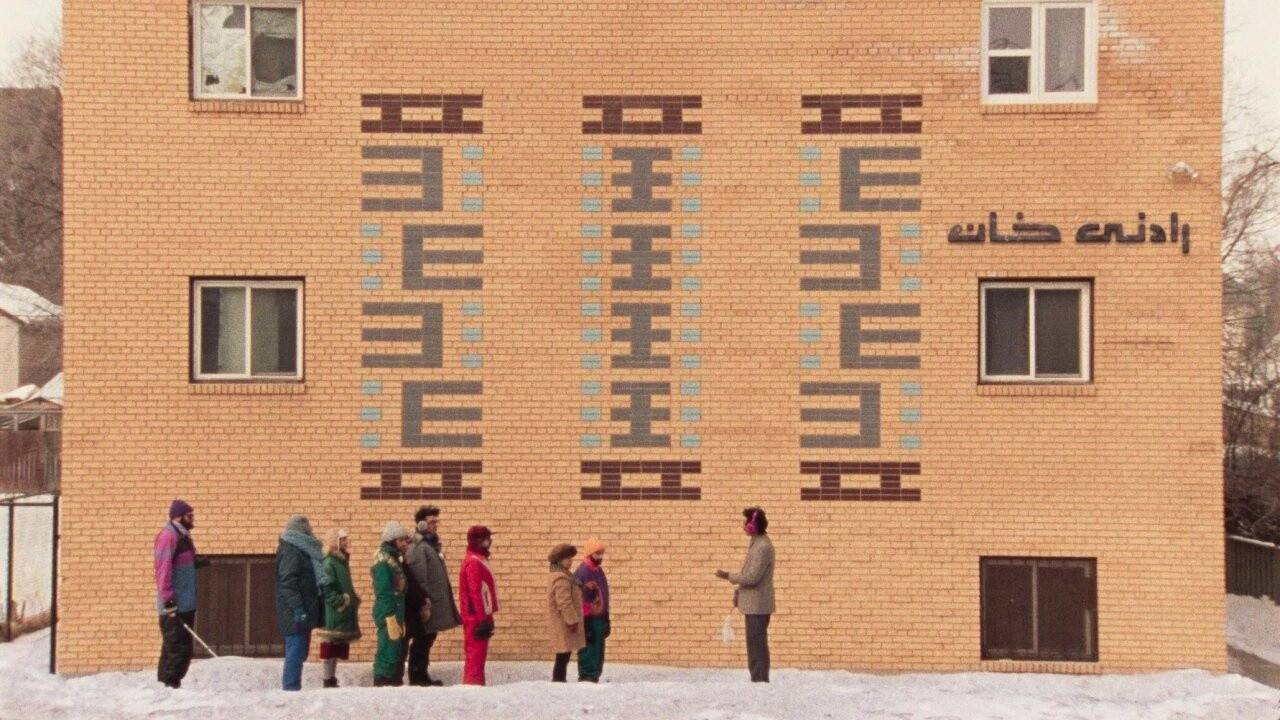
(May 24 / 21:00) UNIVERSAL LANGUAGE
May 24 (Saturday) 21:00
Cinematheque
UNIVERSAL LANGUAGE (Une langue universelle, 2024)
dir. Matthew Rankin, CA, 89’
Blending a distinctive visual style with a specific sense of humor, Universal Language is a charming comedy that warmly celebrates human connection and empathy. The second feature by Matthew Rankin transcends cultural boundaries, reminding us that even in the absence of shared words, the human spirit finds understanding—especially in our increasingly colder and more divided world.
The story unfolds in a mysterious, surreal interzone between Tehran and Winnipeg—an alternative Canada where Farsi and French are the dominant languages. In this uchronian, culturally displaced world, the lives of several characters intertwine in surprising ways, while space, time, and identities become fluid and alive.
With astonishing imagination and humor rooted in absurd situations and cultural misunderstandings, Rankin takes us on a playful journey beyond everyday divisions—where invisible threads connect disparate traditions and individuals, and apparent differences dissolve into shared experience and a sense of community.
Clearly influenced by the Iranian cinematic tradition, Rankin describes Universal Language as “a Venn diagram between Winnipeg, Tehran, and Montreal.” But it is also a film full of hope—deeply moving in its invitation to look beyond what separates us.
Festivals
Awards: Quinzaine, TIFF, Vienna (FIPRESCI), Thessaloniki, Geneva, Melbourne
Selections: Cannes (Directors' Fortnight) • Toronto • New York • London • Montreal • Rio • Rotterdam • Ghent • Hamburg • Valdivia • Marrakech -
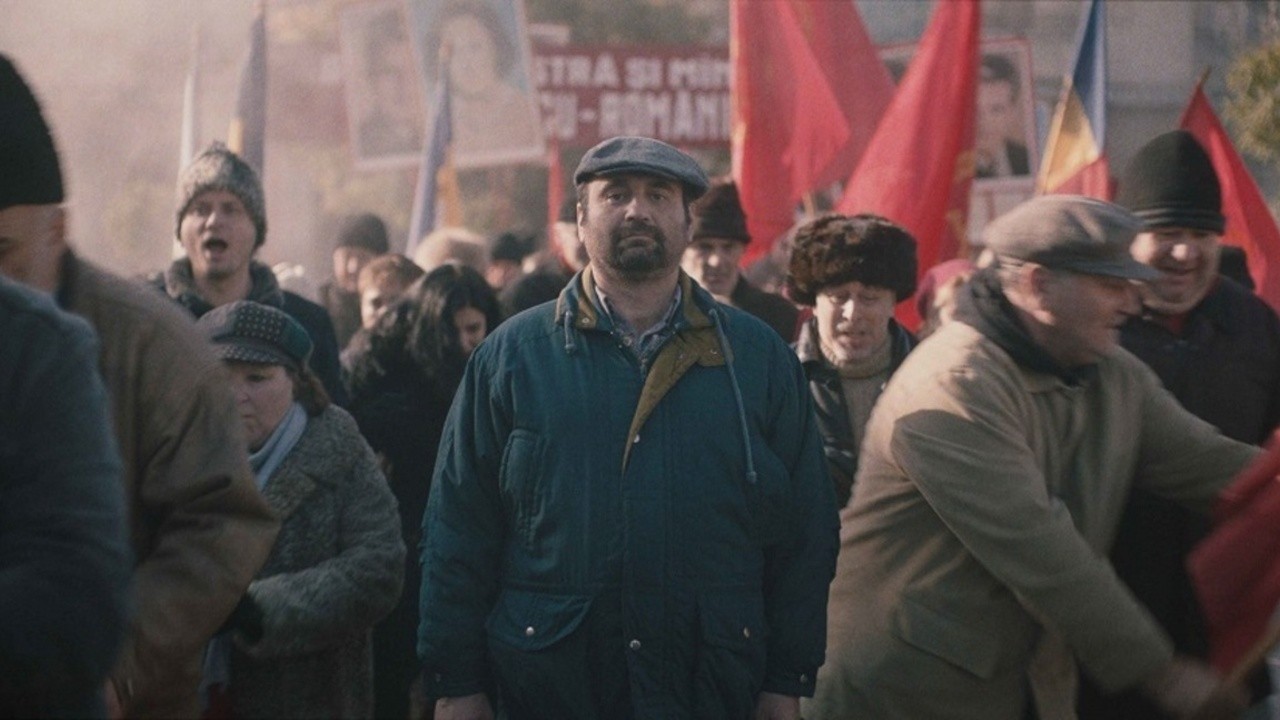
(May 25 / 21:00) THE NEW YEAR THAT NEVER CAME
May 25 (Sunday) 21:00
Cinematheque
THE NEW YEAR THAT NEVER CAME
(Anul nou care n-a fost, 2024)
dir. Bogdan Muresanu, RO, RS, 138’
Just when it seemed Romanian cinema had exhausted the subject of its notorious dictatorship, Bogdan Mureșanu’s feature debut The New Year That Never Came offers a powerful new perspective. Expanding on his acclaimed short The Christmas Gift (2018), the film is a poignant and darkly witty study of the psychology of six characters whose lives intersect on the eve of Ceaușescu’s fall.
Tense and suspenseful, Mureșanu’s film portrays a society already swept by revolutionary winds blowing from the west. As the news from rebellious Timișoara stumbles its way toward Bucharest, the capital’s residents are gripped by paranoia, loneliness, and isolation. Their reactions range from stoicism to compliance to defiance—but all are bound by one shared, irrepressible longing for change.
A moving meditation on repression, trauma under authoritarian rule, and fear, The New Year That Never Came is a satirical tragicomic mosaic of fragments from a single Romanian day—December 20, 1989—but also a testimony to individual resilience, collective will, and the indestructible hope for a better future.
Festivals
Awards: Venice (Orizzonti, FIPRESCI) • Cairo • Bucharest • Palm Springs
Selections: Goa • Zurich • B3 Biennale • Cottbus • Gothenburg • Tallinn • Lisbon • Thessaloniki • Seattle • Barcelona • Vilnius • Istanbul • Leiden -
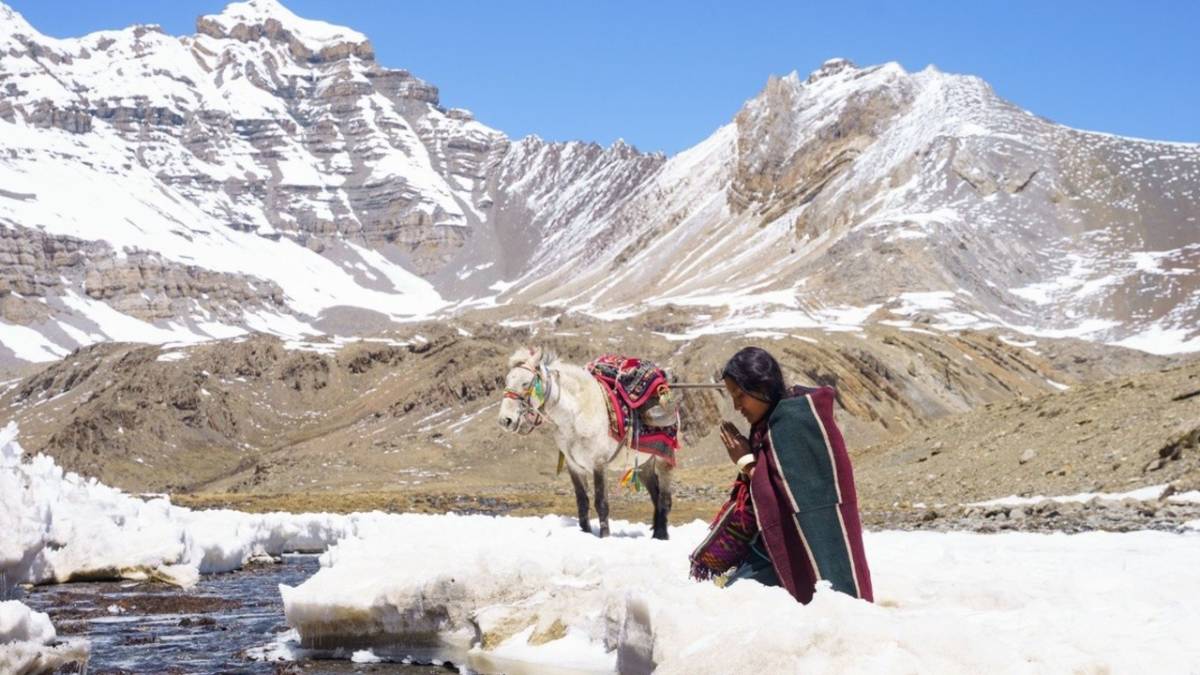
(May 26 / 21:00) SHAMBHALA
May 26 (Monday) 21:00
Cinematheque
SHAMBHALA (शम्भल, 2024)
dir. Min Bahadur Bham, NP, FR, NO, HK, TR, TW, US, QA, 150’
In a remote Himalayan village in Nepal, organized according to the principles of polyandry, newly married and pregnant Pema tries to make the best of her new life. But soon, her husband Tashi disappears on a trade route to Lhasa. Accompanied by Karma, a monk and Tashi’s brother, she embarks on a grueling journey through the harsh wilderness—a voyage that increasingly becomes a search for personal freedom and self-discovery.
Masterfully weaving together tradition and modernity, Shambhala portrays a rarely seen culture on a canvas of breathtaking and mesmerizing Himalayan landscapes. Yet, beneath its unique visual splendor, the film explores timeless and universal themes—love, virtue, and the pursuit of happiness.
For Min Bahadur Bham, it is clear that spiritual freedom does not arise from blind adherence to convention, but from introspection and the deliberate tracing of one’s own path—a philosophy that permeates the entire work. Indeed, this Nepalese odyssey, with its meditative pace and quiet focus, may demand a considerable dose of patience from the contemporary viewer, but the reward it offers far outweighs the effort—a key to unexplored horizons and profound insights into the human quest for freedom and inner peace.
Festivals
Awards: Mumbai (Special Mention) • APSA (Cultural Diversity Award)
Selections: Berlin • Locarno • London • Karlovy Vary • Melbourne • Torino • Palm Springs • Vancouver • Sydney • Rio • Haifa -
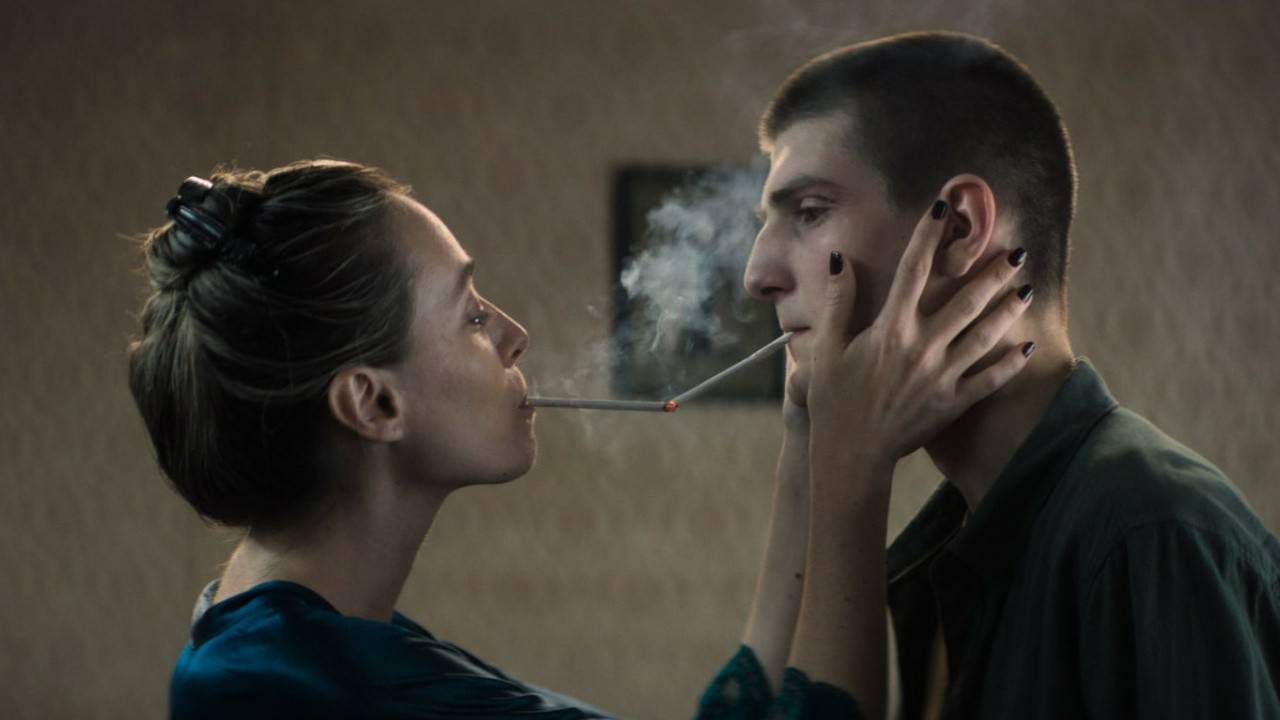
(May 27 / 21:00) PANOPTICON
May 27 (Tuesday) 21:00 | Cinematheque
PANOPTICON (Panoptikoni, 2024)
dir. George Sikharulidze, GE, FR, 95’
When the father of introverted Sandro devotes himself to God, the teenage boy is left alone, caught in the maze of adolescence. Burdened by an awakening sexuality—tinged with voyeurism and exhibitionism—he embarks on a thorny path toward self-understanding, evoking echoes of another cinematic rebel: Antoine Doinel from Truffaut’s The 400 Blows. This inner turmoil and ever-present sense of exposure find their conceptual anchor in the film’s title, which directly references Michel Foucault’s well-known notion of the panopticon: a system of omnipresent surveillance that not only turns the protagonist into a watcher but also burdens him with the paranoid sense of being constantly watched—by God, and by a repressive society.
In his feature debut, Georgian director Giorgi Sikharulidze masterfully explores the blurred boundary between observer and observed, as well as the complex psychology of the individual under repression. Deeply rooted in the specific sociocultural landscape of Georgia, Panopticon offers a nuanced portrait of a young man trapped between his inner demons and the constraints of a conservative environment.
At the same time, the film offers a sharp reflection on the broader crises facing contemporary Georgian society—torn between religious fundamentalism, national identity, and the pursuit of modernization and European values.
Festivals
Awards: Karlovy Vary (Commendation – Ecumenical Jury)
Selections: Karlovy Vary • Tallinn • Stockholm • Goa • Tromsø • Sofia




